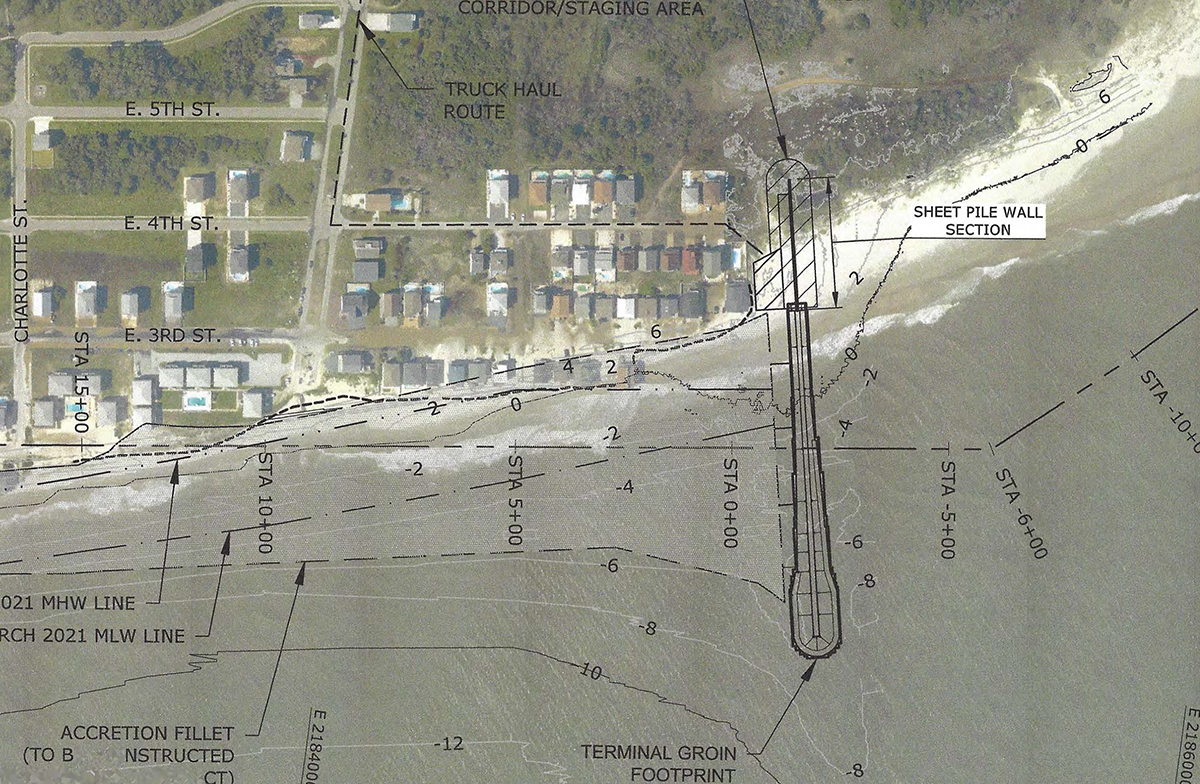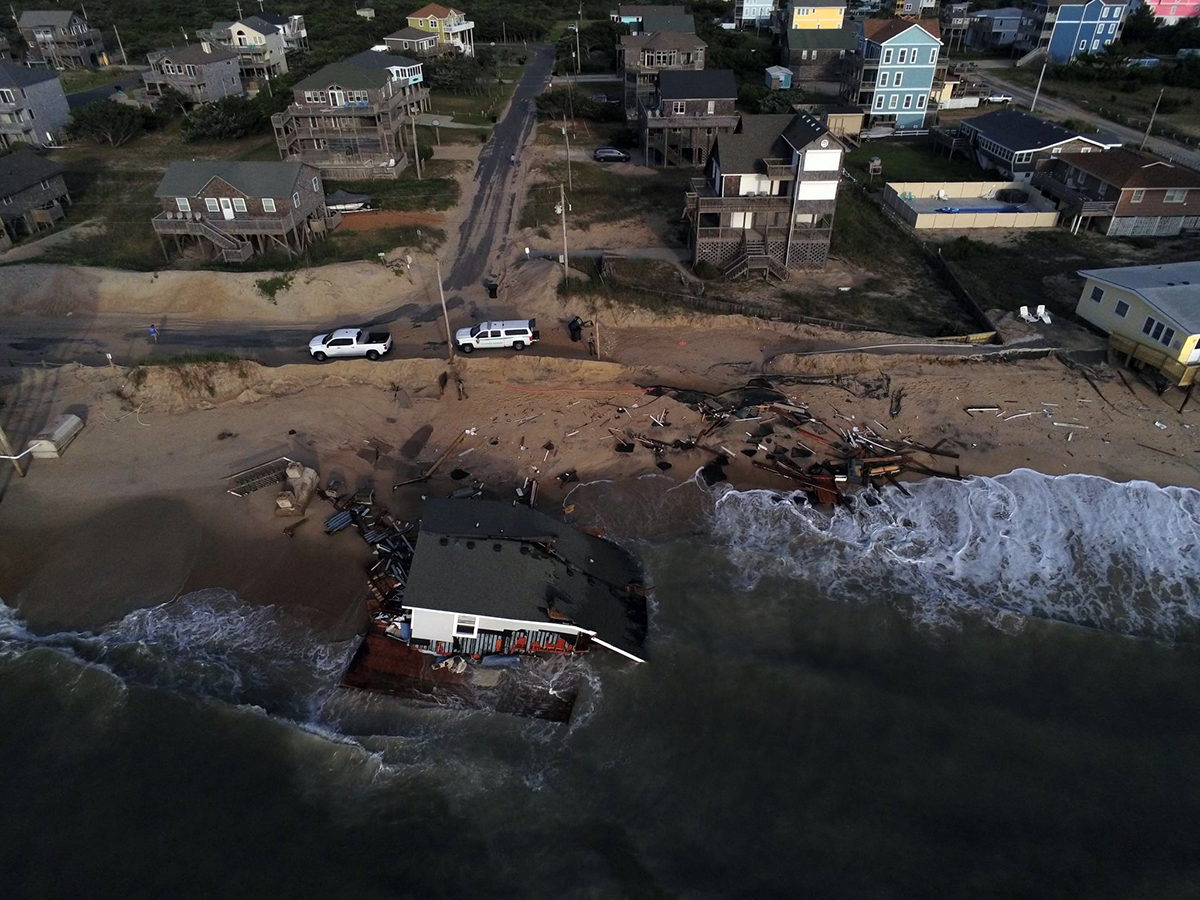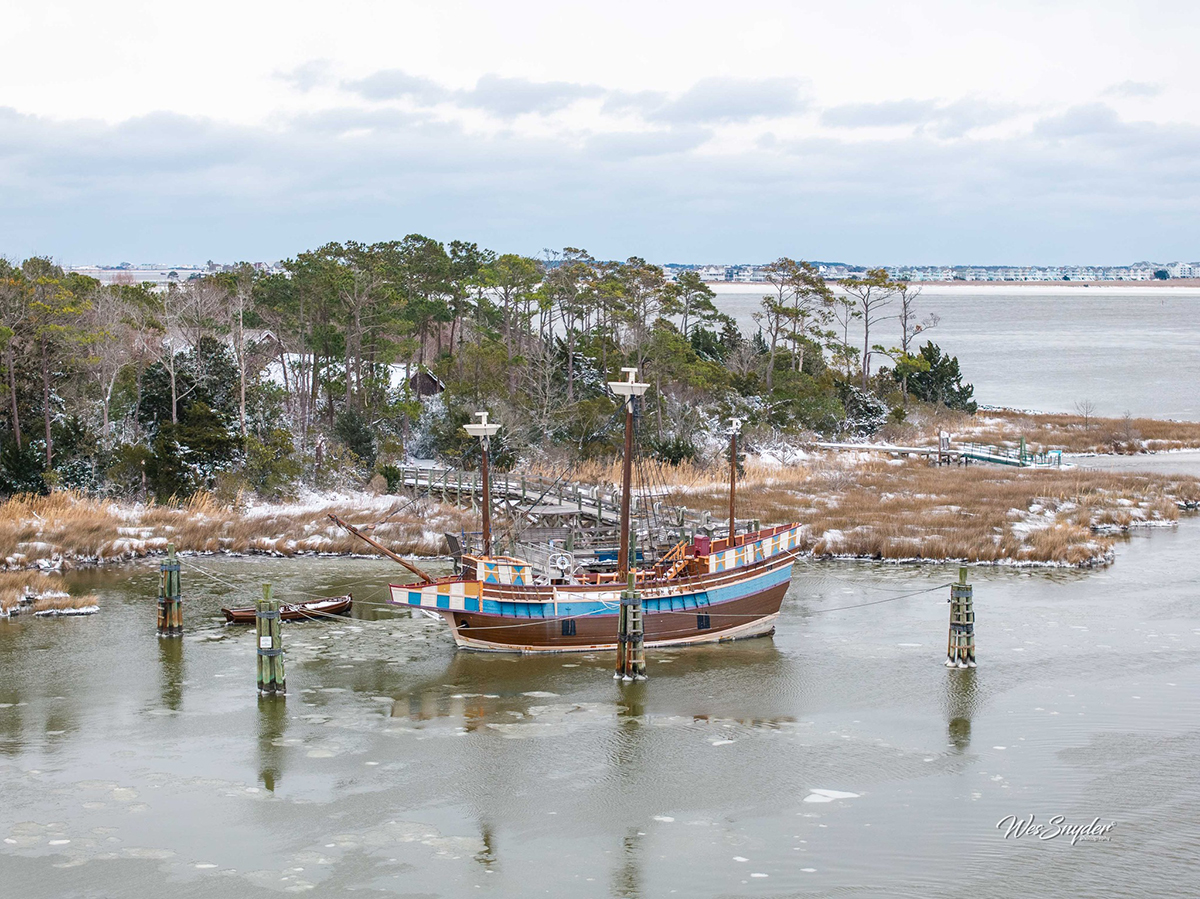
Two major beachfront projects to mitigate erosion and beef up the east end of Ocean Isle Beach’s shore are expected to be underway next month.
Once the environmental window for dredging and beach nourishment activities opens Nov. 16, contractors are set to begin building a terminal groin, a wall-like structure built perpendicular to shore. At the same time, a joint federal project will kick off to beef up the east end of the town’s ocean shoreline.
Supporter Spotlight
“We do hope to see activity on the beach the middle of November,” said Ocean Isle Beach Mayor Debbie Smith.
Though the two projects were initiated separately, the timing is such that they will be done together.
Ocean Isle Beach had the necessary federal and state permits by February 2017 to build a 1,050-foot terminal groin, 300 feet of which will be a sheet-pile, shore-anchorage section.
In August that year, the National Audubon Society filed a lawsuit challenging the U.S. Army Corps of Engineers’ approval of the project.
A three-judge panel in the U.S. Court of Appeals for the Fourth Circuit affirmed last March a lower court’s decision that the Corps fairly considered the alternatives included in an environmental impact statement examining the project.
Supporter Spotlight
About two months prior to that ruling, Congress approved the Fiscal Year 2021 Work Plan for the Army Civil Works program.
That approval included funding for a Coastal Storm Risk Management, or CSRM, project.
Federal funds cover 65% of the project costs, with the town and state matching the remaining 35%.
According to information on the town’s website, Ocean Isle Beach submitted the 35% share of $3,045,000 to the Corps and requested the state reimburse half of that amount.
Last month, the Corps awarded a $6,675,000 contract to Norfolk Dredging Co. to dredge from a borrow area within Shallotte Inlet and place the dredged material at the far-east end of the island.
An estimated 700,000 cubic yards of sand is anticipated to be placed on about 1.5 miles of the easternmost beachfront, according to Dave Connolly, public affairs chief of the Corps’ Wilmington district. Ocean Isle’s ocean shoreline is about 5.5 miles long.
“The work will be completed simultaneously and it is likely the town’s contractor for the groin will start work on the groin and our contractor will start and pump sand behind the groin and fill out the template,” Connolly said in an email response to Coastal Review. “This portion of work behind the groin is a contract option fully funded by the town – we are doing this work for them through an Additional Work Memorandum of Agreement.”
The cost to the town, per that agreement, is an estimated $2.45 million and does not include the cost of constructing the terminal groin, according to information provided on the town’s website.
Of the two bids the town received in September to build the terminal groin, Coastal Design and Construction Inc. of Virginia submitted the lowest at about $11.4 million. Coastal Protection Engineering, the Wilmington firm the town hired to oversee the project, recommended Ocean Isle award the contract to the low bidder contingent upon the town receiving a North Carolina Coastal Area Management Act, or CAMA, major permit modification.
The state has granted the permit modification extending the deadline of the completion of the terminal groin from March 31 to April 30, 2022.
Smith said the request for an extension was made in the event of possible weather-related or equipment-related issues that could push back work on the terminal groin.
“Hopefully with everybody out there it will move quickly,” she said.
A news release earlier this month from the Wilmington District described how, by the end of the project, “the east end of the island will look drastically different and provide added benefits toward recreation, erosion protection and a potential habitat for sea turtles and nesting birds.”
Smith said that opting to have the Corps build up the beach behind the terminal groin cuts down on costs.
“It will save the town money on the terminal groin project because it will save some on the mobilization cost of the dredge,” she said.
Smith said she did not know the specific cost savings, adding, “It’s substantial money.”
The terminal groin is designed to reduce the erosion that has for years eaten away at the east end of the island, where a wall of sandbags 15 feet tall and some 1,500 feet long barricades the ocean from private properties, roads and public utilities.
“Our engineer and modeling reports do say that the terminal groin should extend the life of the (CSRM) project,” Smith said. “How many years we don’t know for sure.”
Dredging for the Coastal Storm Risk Management project is expected to end March 31, 2022.







